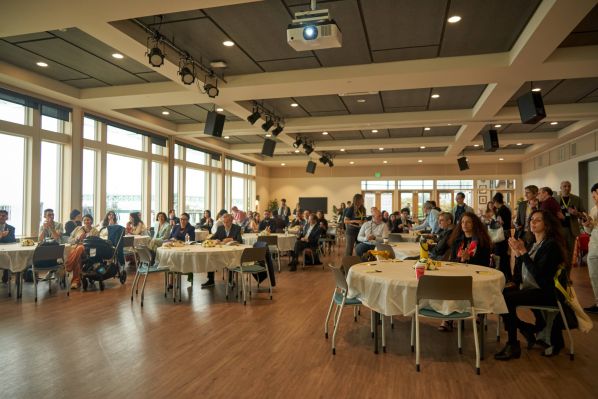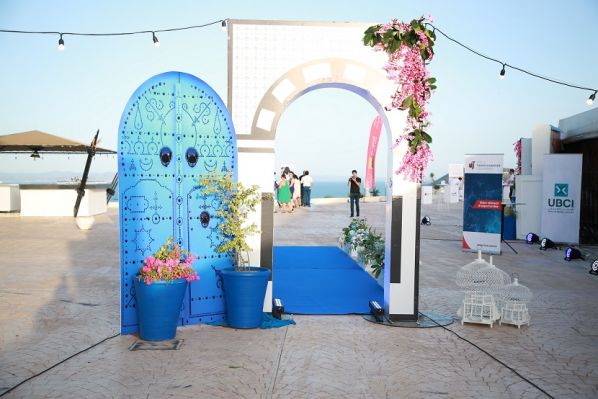Bridging the Gap between Arab and Western Cultures: The role of the Tunisian diaspora

With many of the Arab Spring experiences failing (with the notable exception of Tunisia), it is becoming an even greater responsibility for a diaspora group like TAYP to bridge the cultural gap between the Arab world and western culture. Arab diaspora that live in western countries has a duty to explain, educate, sometimes correct assumptions of Westerners, and Tunisians, in particular have an important responsibility given that the country remains the only beacon of hope in a tumultuous region.
Arab-Western dialogue was a theme recently discussed in three conferences attended by TAYP leadership, the US Arab C3 summit held in New York City on October 6, 2014, the WAFAW international conference on diaspora role in transition countries held in Tunis on October 17, 2014 and the 23rd Annual Arab-U.S. Policymakers Conference organized in Washington DC on October 28-29 by the National Council on US Arab Relations.
On the opening plenary panel of the C3 summit, TAYP board chairman, Mohamed Malouche noted that Tunisia is a case study of moderation in dialogues, in particular dues to its geographical position ( between north and south, West/Arab world), its history (traversed by many civilizations), and recent profound political changes (adoption of a progressive constitution, peaceful transfer of power from islamists to seculars in the recent legislative elections and a highly participatory process of democratization among political parties and civil society characterized by tradeoffs, consensus and compromise).
TAYP was founded immediately after the Tunisian revolution with the goal of increasing economic ties, cooperation and exchanges between Tunisia and the United States, to promote mutual understanding, and create new channels of dialogue between civil society and private sector in both countries. This dialog was timid before the revolution due to multiple reasons (proximity, dictatorship, language..).
In conducting its mission TAYP quickly learned several lessons: first, there is no better understanding then when creation of wealth is shared. Common interests is the best catalyst to overcome divisions and therefore in lieu of advocating for aid from the United States, TAYP has always been working on fostering trade and investment on equal grounds to enable win-win cooperation.
TAYP learned that it was not sufficient to promote Tunisia as a regional hub with fiscal advantages and strong fundamentals. What investors and economic observers care about is first and foremost, trust, openness, rule of law, the kind of fundamental rights and values that are necessary to do business in a transparent fashion. They also do care about making money! This is not surprising but it goes against many presentations that are done to promote Tunisia and that focus on what we, as Tunisians want to convey rather then what our audience cares about.
The third thing we learned was that promoting a country was great but there were no substitute to people to people interactions. The example of Sungard and many other American companies that chose Tunisia is telling. The country’s advantages were the icing on the cake but what sold Sungard and others were personal relationships and trust with Tunisian diaspora and Tunisian business leaders.
This is one of the key reasons why we, at TAYP, have been laser focused on promoting further people to people exchanges between Tunisia and the United States, including young political delegations with our partner ACYPL (American Council for Young Political Leaders), students and universities exchange programs and trade missions/reverse trade missions.
Our actions may look like dispersed activities that are more symbolic and not impactful at a large scale, but we are persuaded that there are no silver bullets to increasing economic ties with the United States and that the effort needs to be grassroots and done grounds up.
Our Tunisian diaspora in the United States can play a huge role to help fill the cultural gap and sometimes correct the misconceptions. It can play an even greater role in intelligently promoting Tunisia’s economic value proposition and leverage its dual identity to bridge the gap of understanding. Many people refer to diasporans as possessing a differentiating dual identity. I viewed it as a unique single identity that is made up of these various experiences gained in Tunisia and overseas, just like Amine Maalouf referred to it in his best seller “les identities meurtrieres”: “What makes me myself rather than anyone else is the very fact that I am poised between two countries, two or three languages, and several cultural traditions. It is precisely this that defines my identity. Would I exist more authentically if I cut off a part of myself?
related news




About the author
Mohamed Malouche